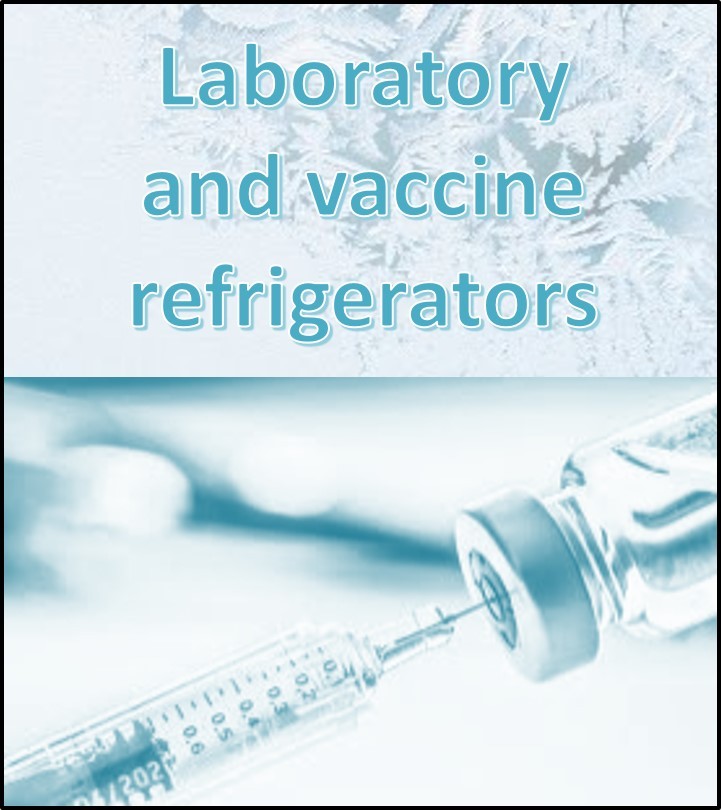Laboratory and vaccine refrigerators

We hope that you have all managed to stay safe and well during the recent pandemic. We are all now back at work and able to (safely) carry out our normal testing and development work. One refrigeration appliance that is anticipated to be much in demand in the future is the vaccine refrigerator (assuming that a vaccine for SARS-CoV-2 is successfully developed). With the recent decline in the market for professional and restaurant refrigerators the need for manufacturers to develop new markets for their products has been critical. Although the vaccine refrigerator is not the same as a professional or commercial refrigerator, there are some similarities and many manufacturers are looking to adapt current appliances/cabinets to meet this new market. Additionally, there is a large market for laboratory cooling systems and so this may also be another potential market for manufacturers.
The UK NHS (National Health Service) and the WHO (World Health Organisation) recommends that most chilled vaccines are stored between 2 and 8°C and that frozen vaccines are stored between -15 and -25°C. WHO provides quality and performance standards for vaccine refrigerators that they approve (see: WHO). Many of these are for off grid or weak grid locations as well as for locations with full grid access. Laboratory refrigerators have different temperature requirements and are generally divided into laboratory refrigerators and freezers and ultra-low temperature (ULT). freezers Requirements can vary, as there are few specifications outside of those used by end-users and by Energy Star in the US. Energy Star define laboratory refrigerators as cabinets which store reagents and biological specimens at set point temperatures of between 0 and 12°C. Freezers are similarly defined as storing samples at set point temperatures of between -40 and 0°C. ULT are defined as being between -70°C and -80°C.
We already know that the performance of vaccine and laboratory refrigerators varies widely in usage. Previous work we have carried out measuring performance of such appliances in use has shown that some appliances use 2-3 times more energy than others to achieve the same internal temperature. This may be partly due to the age of the refrigerator, usage or maintenance but does indicate that efficiency does vary. Work from the University of Cambridge has corroborated this and shown that laboratory refrigeration uses significant energy in real life and that a new ULT freezer can use as little as 20% of the energy that a freezer over 10 years old uses (Cambridge study).
It is estimated that sales of laboratory refrigerators are around 200,000 per year in Europe. Where data is available it has been shown that laboratory refrigerators can cost £300-1000 per year to operate and ULT freezers can cost £1-2k per year to operate (Energy use report). Over a large laboratory estate this can result in a huge expenditure on energy for cooling per year. For example, Cambridge University claims to have over 700 ULT freezers which does not seem atypical for a large research based organisation.
The efficiency of laboratory based refrigeration is being currently evaluated by ICF as a potential new technology to add to the Energy Technology List (ETL). Consultations are ongoing to identify whether there is interest from manufacturers and end users to include laboratory refrigeration on the ETL and the test methodology to be applied. Currently two methods have been identified; DIN 58345 (Refrigerators for drugs) and the US Energy Star Program Requirements for Laboratory Grade Refrigerators and Freezers. Currently Energy Star seems the most favoured option with adaptations applied for the European market. Being able to test and compare the performance of laboratory refrigerators seems extremely beneficial as currently high efficiency equipment is not easily identified in the European market.
If you would like help with the design or testing of a laboratory or vaccine refrigerator or any domestic, professional or commercial refrigerator then please contact us at RD&T (j.a.evans@rdandt.co.uk).